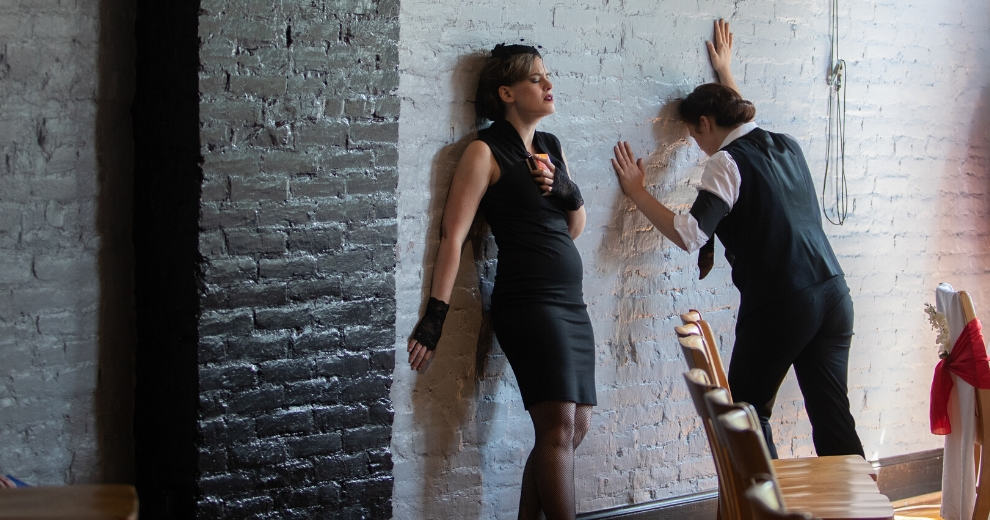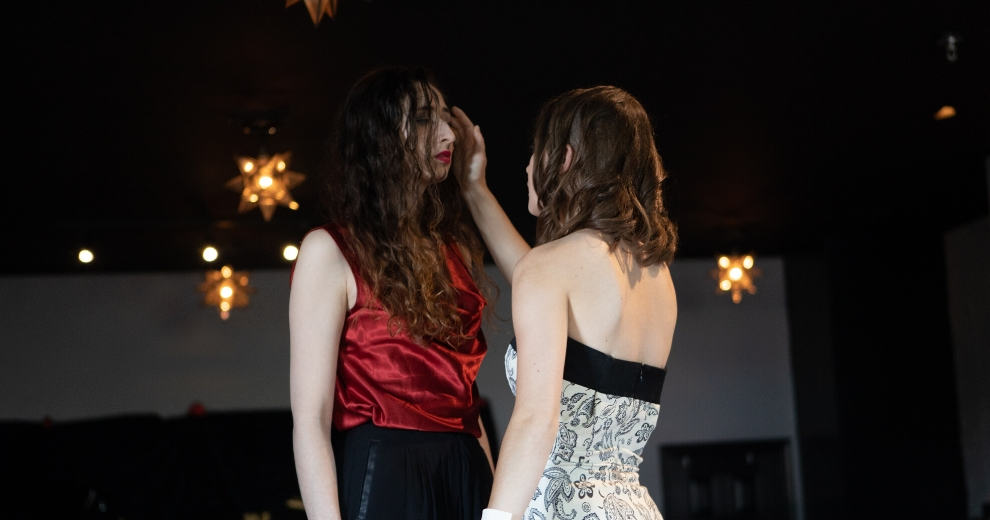Students and faculty from the university’s undergraduate theater program and the graduate Shakespeare & Performance program recently hosted a symposium to discuss issues surrounding the staging of gendered violence.
Acts of gendered violence have been depicted in plays for thousands of years, from Greek drama to Shakespeare and including contemporary plays. But according to faculty members and symposium coordinators Doreen Bechtol, Kerry Cooke, and Molly Seremet, the topic of how to responsibly represent those acts has recently manifested at conferences and on popular theater blogs like HowlRound Theatre Commons.

“Theatrical communities across the country are beginning to discuss the ways theater practitioners approach the representation of these moments — first in the rehearsal room and then on stage,” Cooke said. “We decided to organize a conversation for our own scholarly and theatrical community at MBU.”
That conversation centered around how to ethically stage gendered violence — acts against women, men, the transgender community, or those who identify as nonbinary — in a manner that keeps the actors safe and serves the story. Cooke says that oftentimes forms of gendered violence are used irresponsibly in modes of popular entertainment. So when is it appropriate to use such acts in a production? And how do directors ensure there is clear communication between scene partners about the forms of contact that are acceptable?
The event featured lectures and workshops from various professionals that sought to help students answer those questions. Speakers included Paige Martin Reynolds, a professor of Shakespeare and drama at the University of Central Arkansas and author of Performing Shakespeare’s Women: Playing Dead; k. Jenny Jones, a fight and intimacy director; Charlene Smith MLitt ’13 MFA ’14, an artistic director in Alexandria; and Colleen Kelly, chair of the drama department at the University of Virginia. The day wrapped with a panel discussion, which was live-blogged by some of the students.

For Chrissy Mahoney ’22, a key component of the discussion was the mental and physical well being of actors who tap into emotionally charged topics while using their own bodies to “commit” an act of violence or “experience” trauma. She found Jones’ workshop particularly helpful for dealing with this situation.
“She taught us a means of safely communicating boundaries, interacting with others appropriate to both your boundaries, and how to leave work at work,” Mahoney said. “This was an important take away for me. It gave me a dialogue to help determine my own safety, and I was more conscious of others as well.”
Cooke said the benefits of the symposium were immediate, informing classroom conversation for the rest of the semester. Those conversations will continue as the theatre department organizes similar events in the future while preparing for their February 2020 production of “The Love of the Nightingale,” which contains depictions of physical and sexual violence. Bechtol will direct while Seremet will serve as intimacy coordinator for the production, helping to establish a culture of consent in the rehearsal room in order to enact violence responsibly in the play. It will mark the first time the department has formally named someone to facilitate in that role.
“She taught us a means of safely communicating boundaries, interacting with others appropriate to both your boundaries, and how to leave work at work. This was an important take away for me. It gave me a dialogue to help determine my own safety, and I was more conscious of others as well.”
Chrissy Mahoney ’22